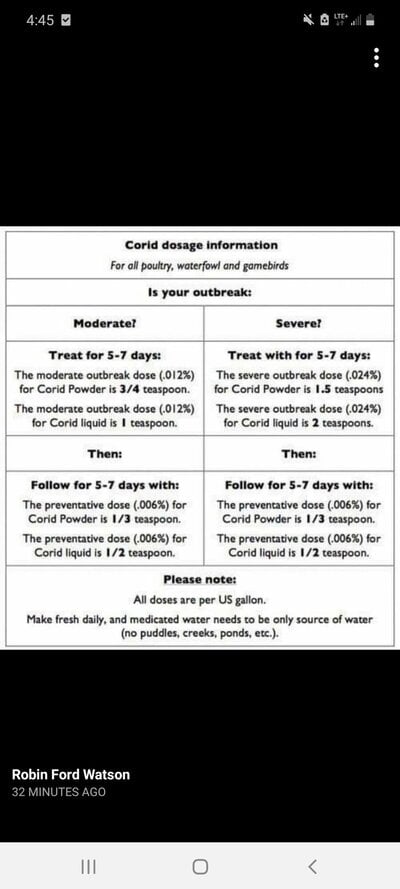Fallfamilyhomestead
Hatching
- Jun 26, 2021
- 5
- 6
- 6
I had 15 white leg horn chicks. They are around 10 weeks old now. Last week I went out to find 5 of them dead. I wasn't sure what happened so I made sure to clean out the coop very well and give them fresh food and water. Well they keep dying. I am pretty sure its cocci. They are fluffy and lethargic on day one and dead on day two. I've also seen bloody stool. I have 4 chicks left that are acting healthy still. I started the corrid medication two days ago now and have still lost two more chicks. I'm cleaning out the coop every day now and giving them fresh water with medication every day. There chick feed is also medicated. I'm am sooo frustrated. I feel like I should be doing more, I just don't know what to do. I'm failing as a chicken keeper. Any suggestions or tips? Thankfully none of my older birds have died but I am also medicating them as well. They are kept separate from the chicks.




